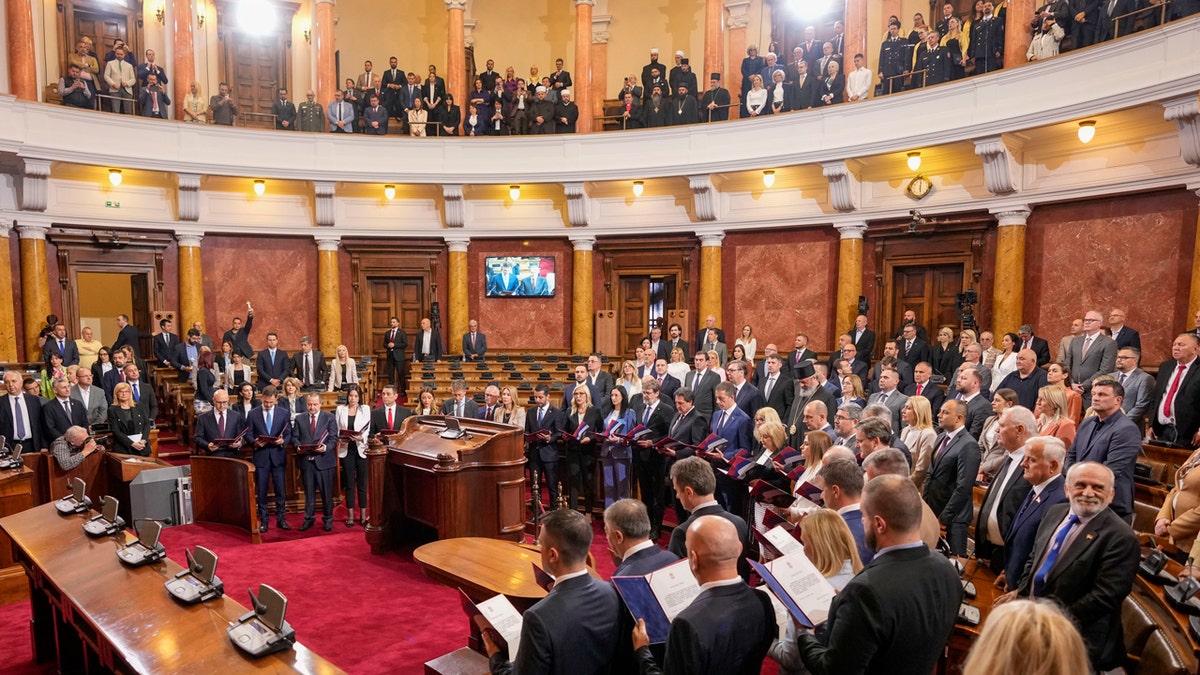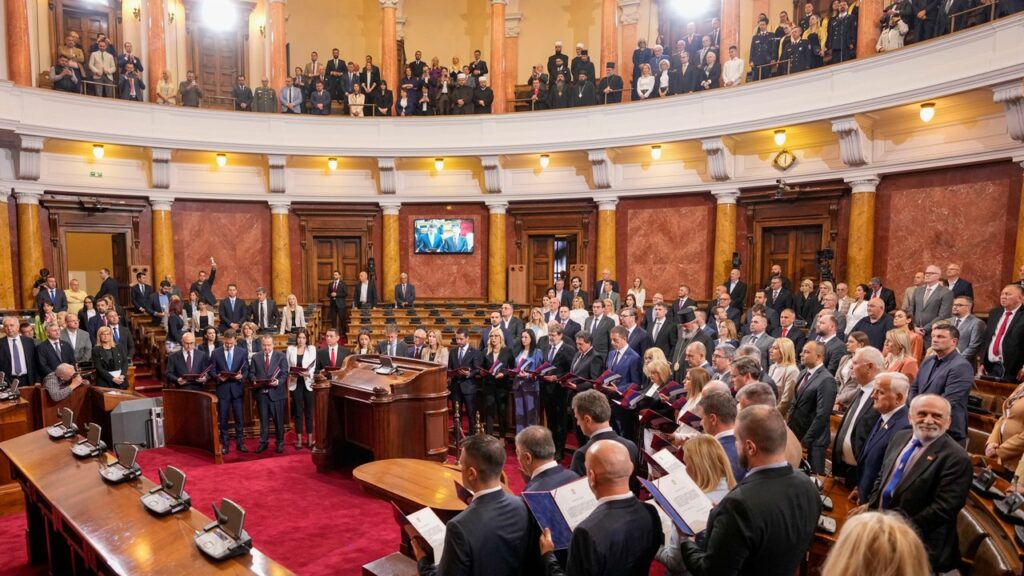Serbian lawmakers on Thursday rejected sanctions from the United States, reflecting the Balkan nation's continued close ties with Russia despite the country's declaration that it aims to join the European Union. It passed a vote to form a new government that would reinstate two pro-Russian officials.
Prime Minister Miloš Vucevic's government was supported by a vote of 152 to 61 in the 250-member parliament. The remaining 37 members were absent.
US-recognized former intelligence chief with ties to Russia to be appointed deputy prime minister of Serbia
The government includes former intelligence chief Alexander Boleyn, who has visited Russia several times in recent months, as one of its deputy prime ministers, and Nenad Boleyn, another Russia supporter facing U.S. sanctions. That includes Mr. Popovich.
Ivica Dačić, the foreign minister in the previous government, is also a pro-Russian politician and will be in charge of the Interior Ministry in the new cabinet.
The vote came after two days of heated debate. President Aleksandar Vučić's nationalist conservative Serbian Progressive Party maintains a comfortable majority after December elections that heightened political tensions amid reports of widespread fraud.

Serbia's new Prime Minister Miloš Vucevic and ministers of the new Serbian government read their oaths to parliament on Thursday, May 2, 2024, at the ministerial swearing-in ceremony at the Serbian Parliament building in Belgrade, Serbia. Serbian lawmakers said on Thursday that the Balkan nation is facing U.S. sanctions, reflecting its continued close ties with Russia despite the country's declaration that it aims to join the European Union. A new government was formed with the return of two pro-Russian officials. (AP Photo/Darko Vojinovic)
Serbia has condemned the invasion, but the increasingly authoritarian Vučić has refused to join Western sanctions over Russia's full-scale invasion of Ukraine.
Vucevic, the new prime minister, reiterated that Belgrade has no intention of imposing sanctions on Russia and that it “cannot and will not abandon” friendly relations with Russia. Integration into the EU remains a “strategic objective”.
He added that the “best possible” relations with the United States were also in Serbia's interest.
“I strongly believe that bilateral relations can once again reach a high level,” Vucevic said.
Filip Eidos, a security analyst and Belgrade University professor, said the new government's composition was a “twist” designed to benefit the West, Russia and domestic voters.
“This sends a message to the EU that if it wants to keep Serbia in its orbit, it should not push Belgrade too hard on democracy, the rule of law or Kosovo,” Aidus said. Told. “At the same time, this shows Russia that we are ready to strengthen our strategic partnership with Russia.”
In July, the United States imposed sanctions on Mr. Vulin for his involvement in the illegal transportation of arms, drug trafficking and misuse of public office.
The U.S. Treasury Department's Office of Foreign Assets Control said Boleyn used his public authority to assist a U.S.-licensed Serbian arms dealer in conducting illegal arms shipments across the Serbian border. U.S. authorities say Vulin is also suspected of involvement in a drug trafficking organization.
Boleyn, who previously served as both military and police chief, recently received two Russian medals of honor. One was awarded by the Federal Security Service (FSB) and the other by Russian President Vladimir Putin.
Popovich, a businessman and former cabinet minister, “has used his Russia-based businesses to enrich his personal finances and cultivated close relationships with Kremlin officials,” the U.S. Treasury Department said in a statement last November.
Opposition lawmaker Radomir Lazovic criticized the participation of the disputed ministers. “These individuals should not be part of the government, not only because they are on the blacklist, but also because their harmful actions harm the Serbian people,” Lazovic said.
US sanctions on individuals and companies in the Balkans are aimed at countering Russia's “malign” influence and attempts to undermine peace and stability in the volatile region.
Western countries are stepping up efforts to draw the troubled region into their fold, worried that Russia could stir up unrest to distract attention from the war in Ukraine. The Balkan Peninsula experienced multiple wars in the 1990s, and tensions persist.
CLICK HERE TO GET THE FOX NEWS APP
Aidus explained that Serbia's declining democratic performance is moving the country away from EU integration. Reports of electoral fraud in the December 17 vote sparked street protests and clashes.
“Mr Vučić still pretends to be going down the EU path, which is beneficial for the Serbian economy, and which the EU is concerned about because of the instability that could be caused in its own backyard if Belgrade were to be taken by Russia and China.” They are tolerating his authoritarian tendencies for fear of becoming more powerful,” Aidus said.


